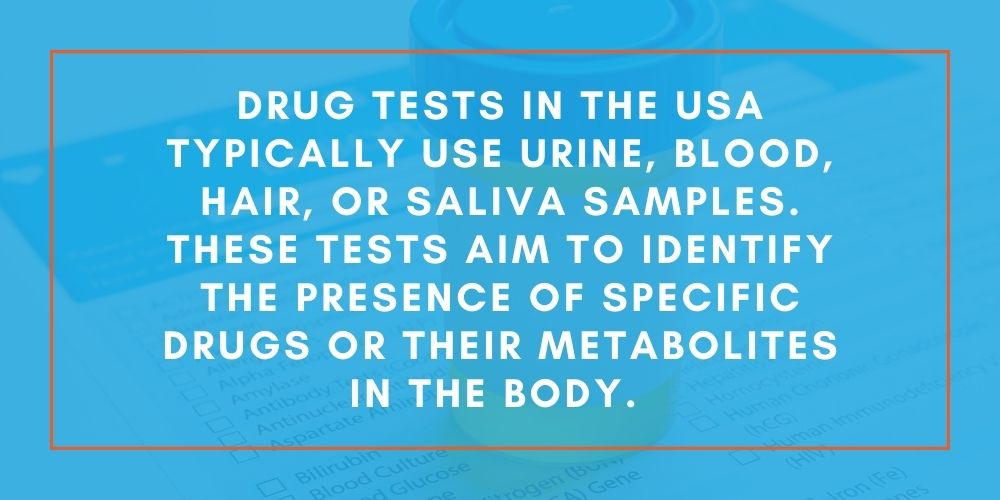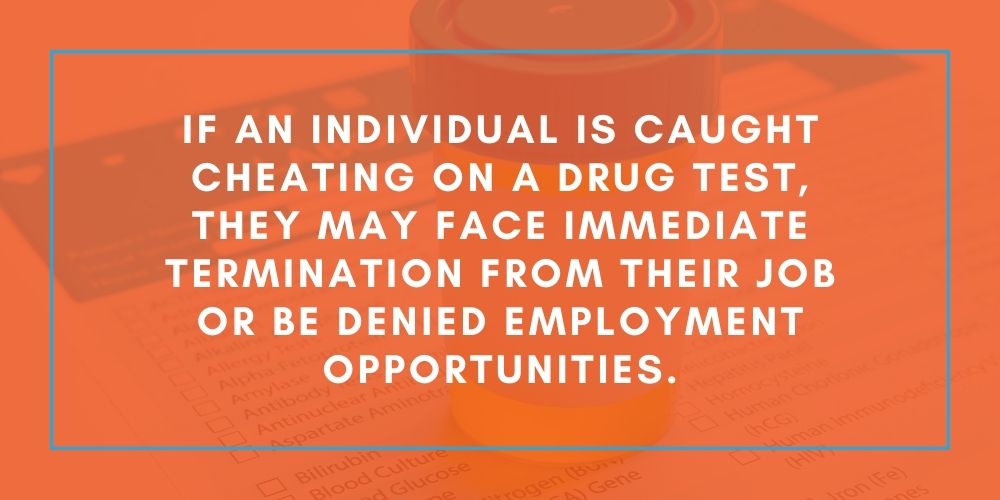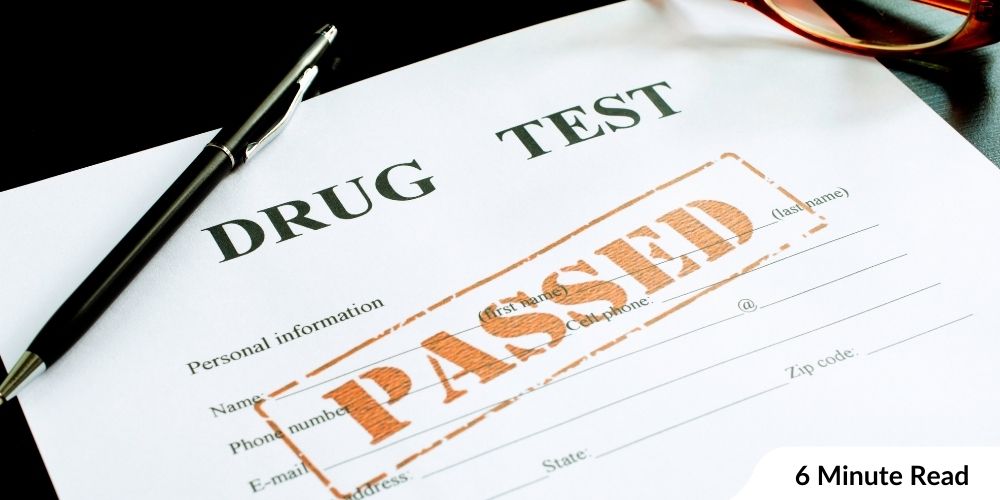How To Pass A Drug Test Ethically In the USA And How Anti-Drug Training Can Help?
Drug tests have become a standard requirement in various contexts in the United States, such as employment, sports, and legal situations. These tests are conducted to detect the presence of drugs or their metabolites in a person’s system.
Before exploring ethical ways to pass a drug test, it’s important to understand how these tests are conducted and their significance in the USA.
How are Drug Testings Conducted?
Drug tests in the USA typically use urine, blood, hair, or saliva samples. These tests aim to identify the presence of specific drugs or their metabolites in the body.
Different drugs have different detection windows, which refer to the period during which drugs can be detected after use.
HELP! I Think My Employee’s Under The Influence: The Do’s And Don’ts Of Reasonable Suspicion
What is the Purpose of Drug Testing?
Drug tests aim to ensure safety, maintain a drug-free environment, and comply with legal and regulatory standards.
Employers often require drug tests to promote a drug-free workplace.
Furthermore, sports organizations conduct drug tests to maintain fair competition and prevent using performance-enhancing substances.
In legal situations, drug tests may be ordered to monitor compliance with court-ordered sobriety or to assess parental fitness.
Also Read: Drug-Free – 10 Steps To Successfully Creating A Drug Awareness Program

What are the Ethical Ways to Pass a Drug Test in the USA?
When facing a drug test, it’s important to approach it ethically, prioritizing honesty and integrity. Attempting to cheat or deceive a drug test is unethical and can have severe consequences.
Here are some ethical ways to pass a drug test in the USA:
Managing A Drug Free Workplace Course
1. Abstain from Drug Use
The most foolproof and ethical way to pass a drug test is to abstain from drug use altogether. Different drugs have varying detection windows, but the safest approach is to refrain from using illicit substances.
By choosing not to use drugs, you eliminate the risk of testing positive and ensure compliance with testing requirements.
Can My Employee Take That? The Do’s And Don’ts Of Medication Use At Work
2. Allow Sufficient Time for Detoxification
If you have recently used drugs, and a drug test is on the horizon, allowing your body enough time to detoxify naturally can be a viable option. The time it takes for drugs to be eliminated from your system depends on factors such as the type of drug, frequency of use, and individual metabolism.
Drinking plenty of water, exercising regularly, and maintaining a healthy diet can aid in the detoxification process.
Save Thousands Of Dollars With Coggno Prime Subscription
3. Seek Professional Advice
If you are concerned about passing a drug test, seeking professional advice can provide valuable insights and guidance. Consulting a healthcare professional, substance abuse counselor, or drug testing expert can help you better understand your options.
They may recommend detoxification methods, provide information on detection windows for different drugs, and offer support throughout the process.
Drug-Free 201: Supervisor Essentials
4. Understand Legal and Workplace Policies
Before undergoing a drug test, you must familiarize yourself with the legal and workplace drug use and testing policies. Different states and organizations may have varying guidelines and consequences for positive drug test results.
Understanding these policies allows you to make informed decisions and take appropriate steps to ensure compliance.
5. Explore Alternative Testing Options
While urine tests are the most common, some organizations may offer alternative testing methods. These may include hair follicle tests or saliva tests with different detection windows.
They can provide an opportunity for a clean result if drug use has been discontinued for a sufficient period.
Drugs and Alcohol: The Facts Course | Training Courses
6. Be Transparent and Seek Support
If you are struggling with drug use and anticipate a drug test, being open and honest about your situation is important. Contact trusted individuals, such as supervisors or human resources, and explain your circumstances.
Some organizations may have resources available to help employees overcome substance abuse issues. It includes employee assistance programs or counseling services.
7. Explore Anti-Drug Training Programs
Anti-drug training programs can play a crucial role in educating individuals about the risks and consequences of drug use while providing strategies for prevention and support. These programs often promote a drug-free lifestyle, enhance decision-making skills, and build resilience against peer pressure.
Participating in an anti-drug training program can help you pass a drug test ethically and equip you with the knowledge and tools to make healthier choices in life.
Drug Identification And Paraphernalia – Course

What are the consequences of unethical practices?
While it may be tempting to resort to unethical practices to pass a drug test, it’s important to understand the potential consequences of such actions.
Employers and testing agencies are constantly improving their methods to detect cheating, and if caught, the repercussions can be severe.
If an individual is caught cheating on a drug test, they may face immediate termination from their job or be denied employment opportunities. Legal actions can sometimes be taken against those who attempt to manipulate drug test results.
Furthermore, attempting to cheat a drug test undermines the trust between employers and employees, creating a negative work environment. It erodes the integrity of the company’s drug testing program and compromises the safety and well-being of everyone involved.
In addition to the professional and legal consequences, there are personal implications. Engaging in unethical practices to pass a drug test can contribute to a cycle of deception and dishonesty, which can harm one’s self-esteem and relationships.
It is far better to face the consequences of drug use honestly and seek the necessary support to address any underlying issues.
Drug-Free 102 : Employee Essentials (Alcohol)
What is the Importance of Ethical Choices?
Making ethical choices when faced with a drug test is the right thing to do and a reflection of one’s character and values. Here are some reasons why ethical behavior is crucial:
Personal Integrity
Ethics is about personal integrity and doing what is right even when no one is watching. Choosing to abstain from drug use or allowing sufficient time for detoxification demonstrates a commitment to personal honesty and responsibility.
It is an opportunity to show that your actions align with your principles.
Professional Reputation
Maintaining a professional reputation is vital for career growth and advancement. Employers value individuals who display integrity and trustworthiness. You demonstrate your commitment to being a reliable and responsible employee by choosing ethical ways to pass a drug test.
It can lead to greater opportunities and increased trust from employers and colleagues.
Long-Term Well-being
Engaging in unethical practices to pass a drug test may provide short-term relief but can have long-term consequences for your well-being. Drug abuse can have severe health implications and negatively impact various aspects of life. It includes physical and mental health, relationships, and overall quality of life.
Addressing and overcoming substance abuse issues ethically is a crucial step toward long-term well-being.
Setting a Positive Example
Our actions influence those around us, especially in professional settings. By choosing ethical ways to handle a drug test, you set a positive example for your colleagues and subordinates.
It can inspire others to make responsible choices and contribute to a healthier and more ethical work environment.
How to Take Responsibility for Change?
Passing a drug test requires taking responsibility for one’s actions and making positive changes.
Here are some steps you can take to make a lasting difference:
Seek Support
If you are struggling with substance abuse, reach out for support. There are numerous resources available, such as helplines, support groups, and rehabilitation programs.
Surrounding yourself with a network of understanding and caring individuals can provide encouragement and guidance to overcome addiction.
Focus on Personal Growth
Use the experience of facing a drug test as an opportunity for personal growth. Reflect on the reasons behind your drug use and identify healthier coping mechanisms.
Engage in self-care activities, such as exercise, meditation, or pursuing hobbies, to channel your energy into positive outlets.
Employee Safety Training 3.0 Course
Educate Yourself
Take the time to educate yourself about the risks and consequences of drug use. Understanding its negative impact on your health, relationships, and career can serve as a powerful motivator to make positive changes.
Stay informed about drug testing procedures and guidelines to ensure compliance and make informed decisions.
Encourage Workplace Support
Advocate for workplace policies that support employees facing substance abuse issues. Promote the availability of employee assistance programs, counseling services, and educational resources within your organization.
By encouraging a supportive environment, you contribute to a culture prioritizing employee well-being and providing opportunities for recovery and growth.
What is the Role of Anti-Drug Training in Ethical Drug Test Practices?
Anti-drug training programs have gained recognition for creating awareness, educating, and empowering individuals to make informed and ethical choices regarding drug use and drug tests.
These programs are designed to address the underlying issues related to substance abuse, such as peer pressure, stress management, and coping mechanisms.
Education and Awareness
One of the primary benefits of anti-drug training programs is their focus on education and raising awareness about the dangers of drug use. These programs provide valuable information about
- The effects of different drugs on the body;
- Potential health risks;
- The legal consequences associated with drug use.
By increasing knowledge and awareness, individuals are better equipped to make informed decisions and understand the importance of ethical drug test practices.
Prevention and Risk Reduction
Anti-drug training programs emphasize prevention and risk reduction strategies. They teach individuals how to recognize and avoid situations that may lead to drug use. Participants learn effective refusal skills to resist peer pressure and make choices aligned with their values and goals.
By developing these skills, individuals are better prepared to navigate scenarios where drug use may be present, including situations where a drug test is imminent.
Decision-Making Skills
Ethical drug test practices require individuals to make responsible decisions. Anti-drug training programs focus on enhancing decision-making skills, enabling individuals to evaluate the potential consequences of their actions.
Participants learn to consider short-term gratification and long-term consequences through interactive exercises and discussions. It empowers them to make choices that prioritize their well-being and ethical conduct.
Coping Mechanisms and Alternative Strategies
Substance abuse often stems from underlying emotional or psychological issues. Anti-drug training programs provide participants with alternative coping mechanisms and strategies to address stress, peer pressure, or other triggers that may lead to drug use.
Furthermore, these programs teach healthy ways to manage emotions, build resilience, and seek support from trusted individuals or resources.
By equipping individuals with these tools, anti-drug training programs contribute to ethical drug test practices by promoting overall well-being and reducing the likelihood of drug use.
Support and Resources
Anti-drug training programs often connect participants with support networks and resources available in their communities. These resources may include counseling services, helplines, support groups, or rehabilitation programs.
By fostering a sense of community and providing access to appropriate support, these programs play a vital role in helping individuals overcome substance abuse challenges and maintain ethical drug test practices.
Take anti-drug training from Coggno.
End Note
Passing a drug test ethically in the USA requires a commitment to honesty, integrity, and responsible decision-making. Abstaining from drug use and allowing sufficient time for natural detoxification are ethical approaches.
Seeking professional advice, understanding legal and workplace policies, and participating in anti-drug training programs can provide valuable guidance and support.
Anti-drug training programs equip individuals with knowledge about the risks and consequences of drug use and empower them to make informed choices. These programs focus on prevention, risk reduction, decision-making skills, coping mechanisms, and access to support resources.
By incorporating anti-drug training into one’s lifestyle, individuals can pass drug tests ethically while promoting a drug-free and healthier environment for themselves and those around them. Remember, making ethical choices and seeking support are important steps toward a brighter, drug-free future.
Maximize Training, Minimize Costs With Coggno Prime
Frequently Bought Courses:
- Drug-Free 201: Supervisor Essentials
- Managing A Drug Free Workplace
- Drug-Free 101: Employee Essentials
- Basic Community Policing
- Drugs And Alcohol: The Facts Course









